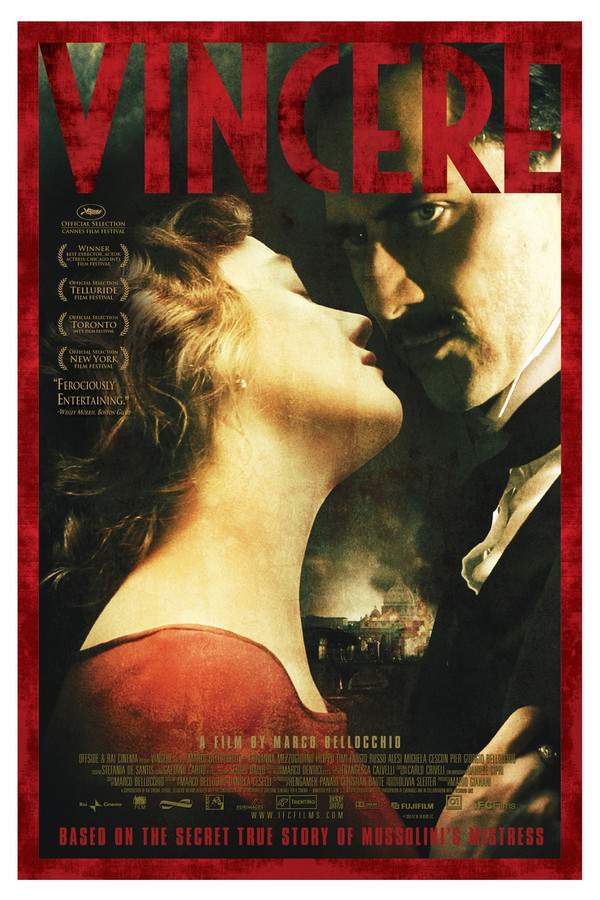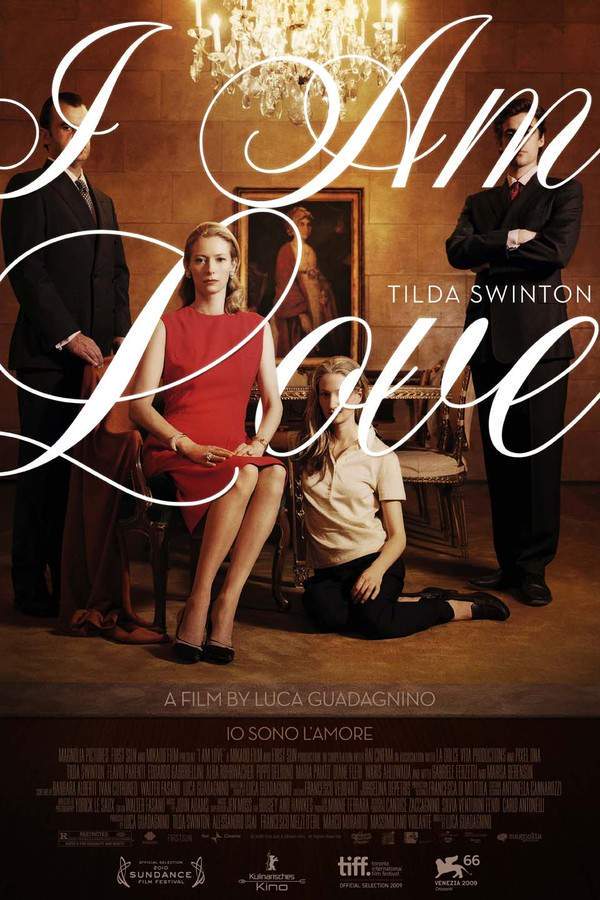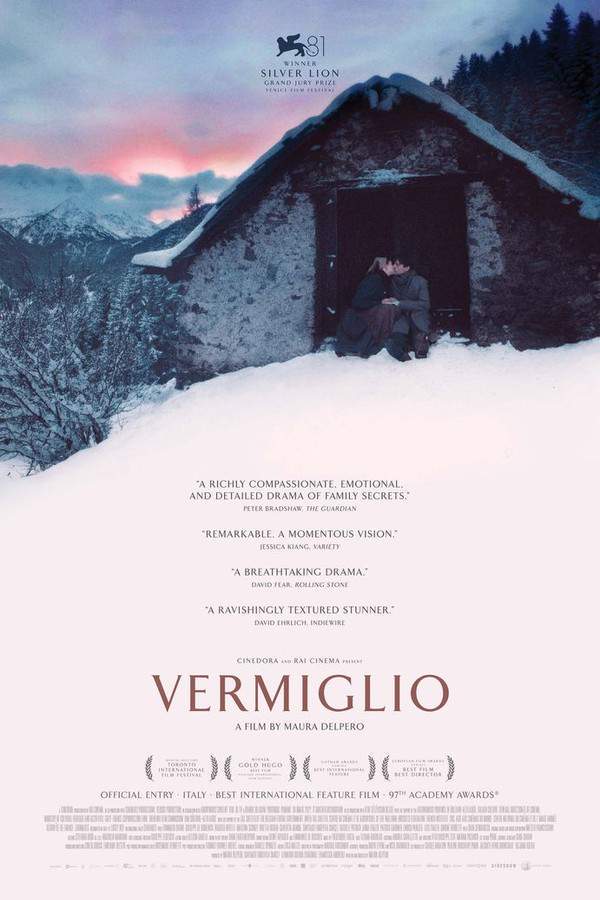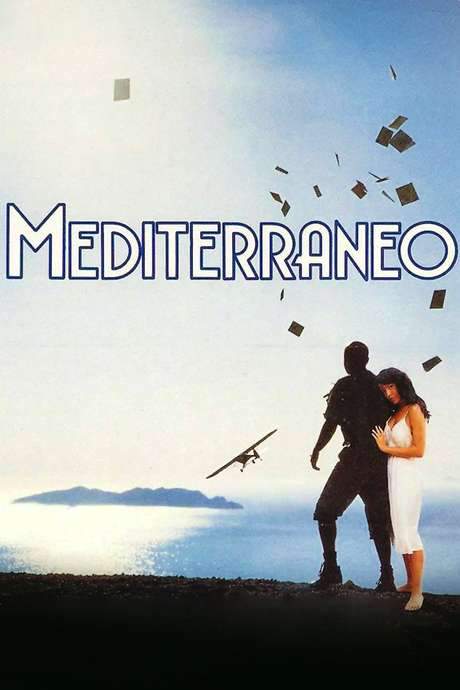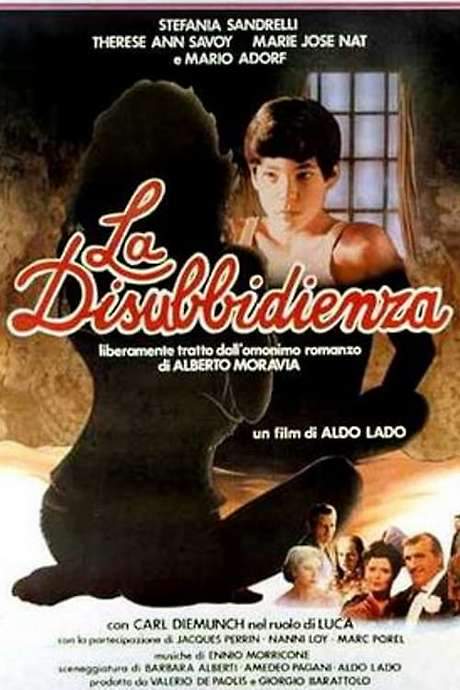Tea with Mussolini 1999
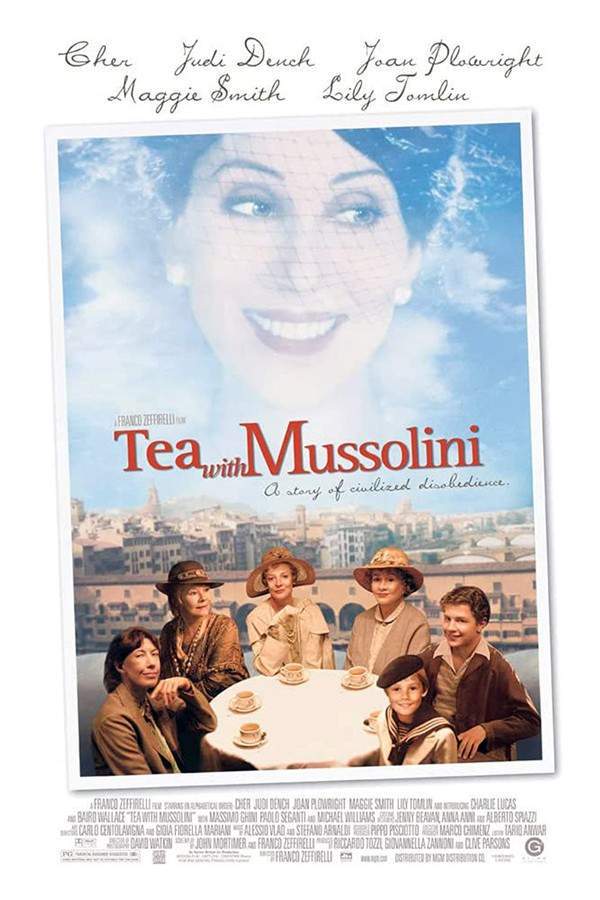
In 1930s Italy, a young boy named Luca is sent to live with British expatriate Mary Wallace after the loss of his mother. He finds comfort and friendship within her circle of cultured companions, all living privileged lives. As the shadow of war lengthens and the political climate shifts, their refined world begins to fall apart. Luca must then confront difficult choices and navigate a complex situation involving love, loss, and the challenges of loyalty within the changing landscape of Mussolini's Italy.
Does Tea with Mussolini have end credit scenes?
No!
Tea with Mussolini does not have end credit scenes. You can leave when the credits roll.
Meet the Full Cast and Actors of Tea with Mussolini
Explore the complete cast of Tea with Mussolini, including both lead and supporting actors. Learn who plays each character, discover their past roles and achievements, and find out what makes this ensemble cast stand out in the world of film and television.
External Links and Streaming Options
Discover where to watch Tea with Mussolini online, including streaming platforms, rental options, and official sources. Compare reviews, ratings, and in-depth movie information across sites like IMDb, TMDb, Wikipedia or Rotten Tomatoes.
Ratings and Reviews for Tea with Mussolini
See how Tea with Mussolini is rated across major platforms like IMDb, Metacritic, and TMDb. Compare audience scores and critic reviews to understand where Tea with Mussolini stands among top-rated movies in its genre.

53
Metascore
7.3
User Score


%
TOMATOMETER

0%
User Score

6.9 /10
IMDb Rating

64
%
User Score
Take the Ultimate Tea with Mussolini Movie Quiz
Challenge your knowledge of Tea with Mussolini with this fun and interactive movie quiz. Test yourself on key plot points, iconic characters, hidden details, and memorable moments to see how well you really know the film.
Tea with Mussolini Quiz: Test your knowledge about the movie 'Tea with Mussolini' and its characters, themes, and historical context.
What year is the primary setting of 'Tea with Mussolini'?
1935
1941
1925
1944
Show hint
Awards & Nominations for Tea with Mussolini
Discover all the awards and nominations received by Tea with Mussolini, from Oscars to film festival honors. Learn how Tea with Mussolini and its cast and crew have been recognized by critics and the industry alike.
53rd British Academy Film Awards 2000

Best Costume Design
Full Plot Summary and Ending Explained for Tea with Mussolini
Read the complete plot summary of Tea with Mussolini, including all major events, twists, and the full ending explained in detail. Explore key characters, themes, hidden meanings, and everything you need to understand the story from beginning to end.
In the enchanting backdrop of Florence in 1935, a distinguished group of English expatriates, known as the Scorpioni, gather for their cherished afternoon tea rituals. This diverse assembly of cultured women includes Arabella, an aspiring artist renowned for her eccentricity, and Mary Wallace (portrayed by Judi Dench), who also serves as the caregiver for young Luca. Their companionship extends to Luca’s seamstress mother, who has recently passed away. With Luca’s father, a prosperous Italian businessman, exhibiting a lack of interest in his son’s upbringing, Mary steps in and turns to her Scorpioni friends for guidance.
Serendipitously, Elsa Morganthal, a wealthy American widow with a fondness for Luca’s late mother, learns of the boy’s plight and sets up a financial trust for him. This act of kindness receives a nod of condescending approval from Lady Hester Random, who reluctantly permits Elsa’s presence in their circle.
However, their peaceful gatherings become threatened as Italian Fascists attack their favored café, mirroring the rising anxieties within the expatriate community. As tensions heighten, the Scorpioni increasingly feel the squeeze of oppression, with Luca’s father, fearing Italy’s impending alliance with Germany, opting to send him away to an Austrian boarding school.
Time progresses to five years later, and Luca returns to Florence with ambitions of becoming an artist, empowered by Elsa’s trust fund. Yet, turmoil looms as the majority of British nationals are retreating, anticipating Mussolini’s war declaration against Great Britain. Mary has now taken residence with Lady Hester and the remaining English hold-outs, all grappling with their uncertain futures.
While the United States maintains its peace, Elsa (played by Cher) and her bold American friend Georgie Rockwell, a pioneering archaeologist unafraid of her lesbian identity, find liberty from the war’s constraints. Elsa seizes the chance to utilize Luca as a courier, facilitating the discreet delivery of forged documents and funds to secure the Scorpioni’s relocation from their humble quarters to luxurious digs. Lady Hester, cloaked in delusion, triumphantly displays a newspaper photo of herself with the Italian dictator, believing this move was sanctioned by Mussolini himself.
Amid the chaos of the war, Elsa—a Jewish woman safeguarded from persecution due to her wealth and nationality—secretly collaborates with Italian Jews to create fake passports. She enlists the reluctant help of Luca, who harbors unspoken feelings for her, to deliver these vital documents, unknowingly complicating their relationship as she grows closer to Vittorio, an Italian lawyer. As the war intensifies by 1941, Elsa and Georgie find themselves interned alongside British women, grappling with the harsh realities of their situation.
Meanwhile, Vittorio, driven by deceitful intentions, absconds with Elsa’s art collection and funds, plotting to betray her to the German Gestapo while pretending to offer her a false escape route to Switzerland. Consumed by jealousy, Luca keeps this vile treachery a secret from his friends Mary and Wilfred. However, the truth eventually surfaces when Mary learns of Vittorio’s betrayal through Elsa’s art dealer and confronts Luca, stirring his conscience.
With a shift in perspective, Luca decides to redirect his trust fund towards the Italian resistance movement, joining forces with Wilfred. Oblivious to the schemes against her, Elsa remains unaware of Vittorio’s duplicity until Lady Hester, chastised by Mary for her unrestrained admiration of Mussolini, divulges the grim reality, promising her support for the scheme.
In a pivotal moment, Elsa confides in Luca about her past support for his mother during a challenging pregnancy, deepening their connection. As plans for their escape take shape, the urgency heightens with the British Army closing in on San Gimignano in July 1944. Together with Arabella and Georgie, the English women, including Lady Hester, valiantly defend their artistic heritage against German troops.
As the Germans retreat, San Gimignano remains largely untouched, a testament to the resilience of its community. The arrival of the Scots Guards ignites celebration, with Luca stepping into the role of their trusted interpreter. Despite orders to abandon their home, Lady Hester staunchly resolves that they will rebuild their lives in Italy.
In the aftermath of war, Mary beams with pride as Luca, now dressed in British military uniform, fulfills his father’s dream of becoming an “English gentleman.” The film concludes with a revealing glimpse into the fates of these characters, showcasing Luca’s evolution into a gifted artist and an integral part of the narrative.
Uncover the Details: Timeline, Characters, Themes, and Beyond!

Coming soon on iOS and Android
The Plot Explained Mobile App
From blockbusters to hidden gems — dive into movie stories anytime, anywhere. Save your favorites, discover plots faster, and never miss a twist again.
Sign up to be the first to know when we launch. Your email stays private — always.
Watch Trailers, Clips & Behind-the-Scenes for Tea with Mussolini
Watch official trailers, exclusive clips, cast interviews, and behind-the-scenes footage from Tea with Mussolini. Dive deeper into the making of the film, its standout moments, and key production insights.
Tea with Mussolini Themes and Keywords
Discover the central themes, ideas, and keywords that define the movie’s story, tone, and message. Analyze the film’s deeper meanings, genre influences, and recurring concepts.
Tea with Mussolini Other Names and Titles
Explore the various alternative titles, translations, and other names used for Tea with Mussolini across different regions and languages. Understand how the film is marketed and recognized worldwide.
Similar Movies To Tea with Mussolini You Should Know About
Browse a curated list of movies similar in genre, tone, characters, or story structure. Discover new titles like the one you're watching, perfect for fans of related plots, vibes, or cinematic styles.
Quick Links: Summary, Cast, Ratings, More

What's After the Movie?
Not sure whether to stay after the credits? Find out!
Explore Our Movie Platform
New Movie Releases (2026)
Famous Movie Actors
Top Film Production Studios
Movie Plot Summaries & Endings
Major Movie Awards & Winners
Best Concert Films & Music Documentaries
Movie Collections and Curated Lists
© 2026 What's After the Movie. All rights reserved.
















